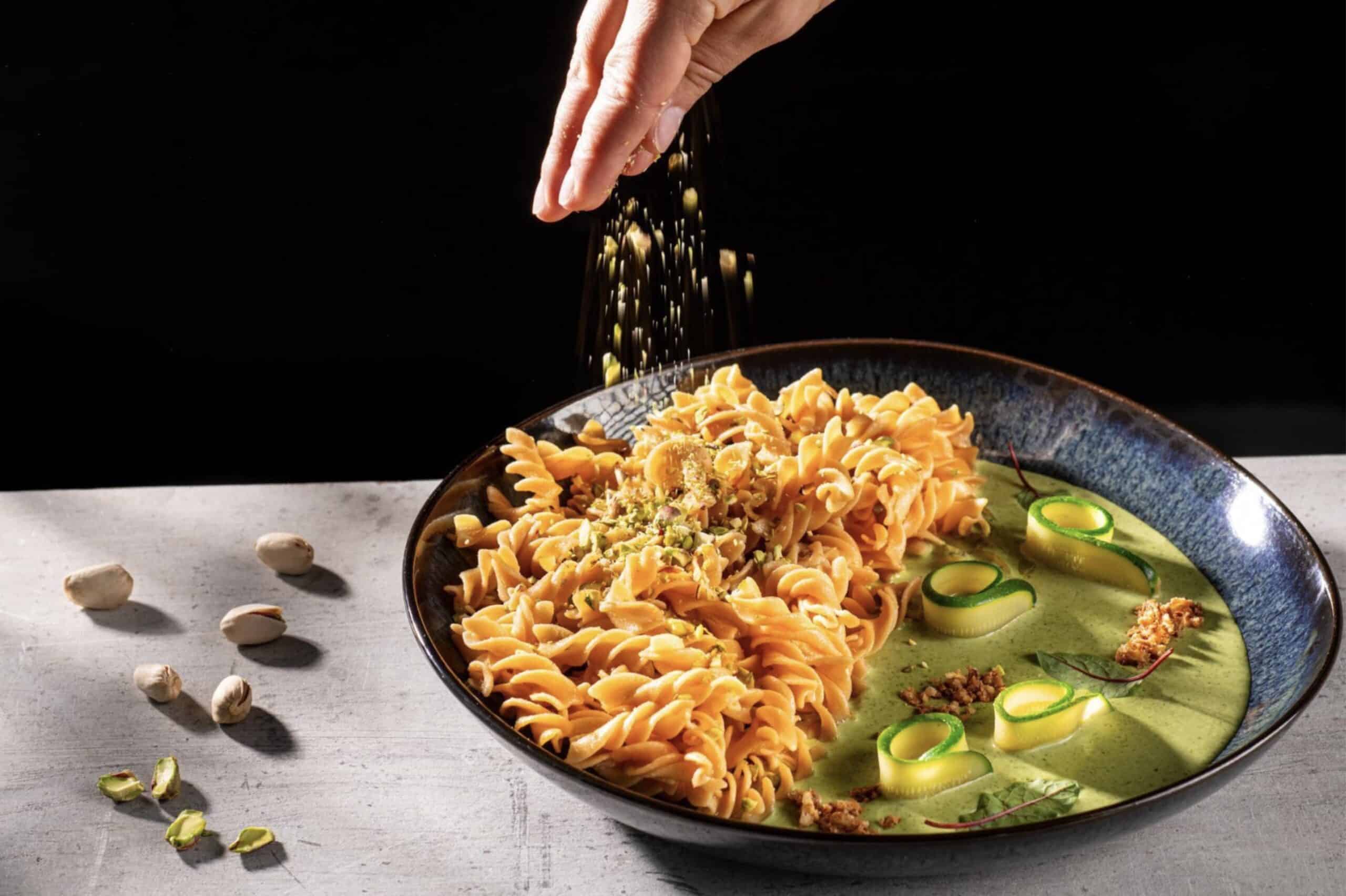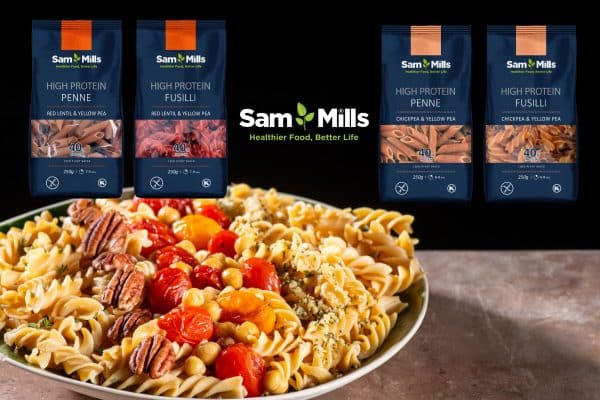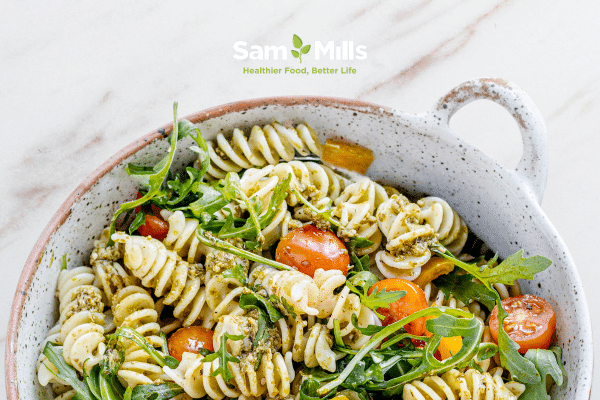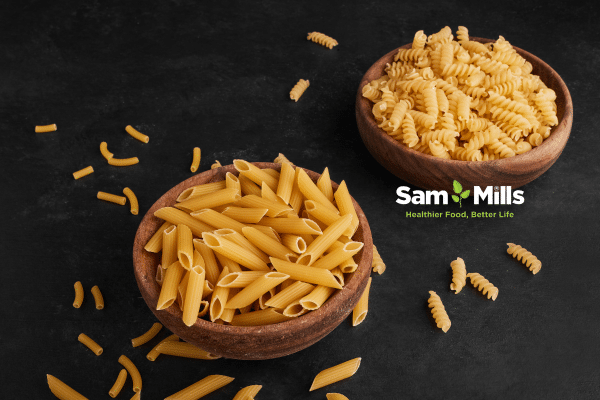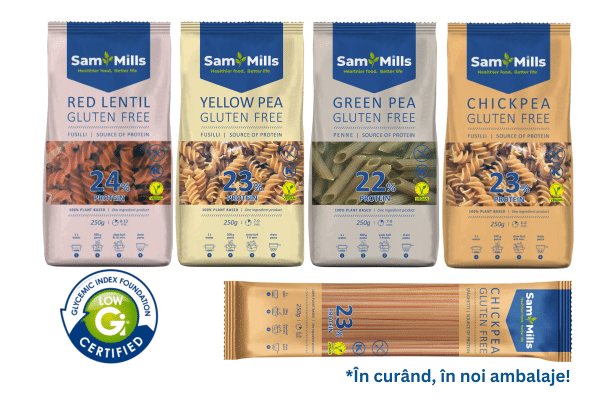All about plant proteins: how and why to include them in your diet
A healthy lifestyle starts with the food you eat every day. No matter what diet you follow, you need complete protein at every meal to maintain your energy and vitality. Here's why protein is essential to a balanced diet and how you can enjoy a high-protein meal without sacrificing taste and flavour.
What is protein?
Protein is found in every cell in the body and is essential for its health. Along with fats and carbohydrates, protein is an essential macronutrient, providing you with the energy you need to function optimally.
Once digested, proteins are broken down into amino acids, which are used by the body to synthesise proteins. There are 9 amino acids that the body cannot synthesise, which are only obtained through food.
Proteins have various functions, helping to maintain and repair tissues, support the immune system and regulate metabolic processes. They play an essential role in the structure, function and regulation of cells, tissues and organs.
Protein is responsible for the development of muscle mass and is a vital macronutrient for those who practise sports or lead an active lifestyle.
How much protein should you eat in a day?
Recommended daily protein intake can vary depending on factors such as age, gender, weight, physical activity level and overall health goals. In general, about 10-35% of your total daily calorie intake should come from protein - hence the recommendation to fill a quarter of your plate with protein sources.
Health authorities recommend a minimum of 0.8 grams of protein per kilogram of body weight for adults.
For those who practise sports, protein needs are higher. Some experts suggest 1.2-2.2 grams of protein per kilogram of body weight for those involved in regular exercise to support muscle repair and growth.
Why do you need plant protein?
We all know that animal products are a source of protein, but just as important for the body's health are plant-based proteins.
Among the most important sources of plant protein are legumes (peas, beans, lentils, chickpeas, soya), nuts and seeds, and certain vegetables.
Unlike proteins from animal sources, plant proteins contain fibre, thus supporting a healthy intestinal transit and providing a feeling of satiety for longer.
Plant proteins contain a variety of vitamins and minerals, and their low saturated fat content can contribute positively to cardiovascular health. In addition, plant-based protein diets have been associated with a reduced risk of hypertension and type 2 diabetes.
Plant proteins are not necessary just for those on a vegetarian or vegan diet. At the core of any balanced diet is diversity, and plant proteins can help you include a wider variety of plant-based foods in your diet.
High Protein Pasta – the benefits of protein in a savoury bowl of pasta
Integrating plant proteins into your diet is an important step towards a healthier lifestyle. Especially if you have an active life, a meal with protein-rich foods will help you develop muscular mass, recover and maintain your energy levels.
Our selection of High Protein Pasta opens up a new way of integrating the benefits of proteins and legumes into your diet. High Protein Pasta are the ideal choice if you are practising sports, following a vegan or vegetarian diet, or simply want to increase your quality protein intake in your diet.
With High Protein Pasta, it is so easy to increase your protein intake without giving up on the flavour of your favourite recipes. A single portion of pasta (100g) contains 40 grams of protein, offering a wholesome, nutritious and delicious meal.
These high protein pasta are based on high-quality legumes, rich in nutrients, fibres, vitamins and minerals that satisfy your daily nutritional needs.
We combined yellow peas, a source of complete protein that contains all 9 essential amino acids, with other legumes like lentils and chickpeas, to offer you a healthier and just as tasty alternative to traditional wheat pasta.
How many types of protein pasta are there?
Sam Mills offers you a wide range of high protein pasta, in the shape of the classic fusilli or penne pasta. Whether you enjoy the slightly sweet taste of chickpeas, or you prefer the balanced flavour of red lentils, you will receive the same abundance of nutrients and proteins with each kind of High Protein Pasta.
We recommend our red lentil and yellow pea pasta for an extra touch of colour in your plate, or chickpea and yellow pea pasta if you appreciate the unique taste of chickpeas.
You'll find the full range of high-protein pasta from Sam Mills in supermarkets and in our online store.
Why include High Protein Pasta into your diet:
- They are rich in plant-based protein, covering the daily protein requirement for an active lifestyle;
- They are an important source of iron, magnesium and vitamin K;
- They are a source of fibre, contributing to a healthy digestive system;
- Made only with natural ingredients, these high protein pasta are free from gluten, additives, chemicals, added salt or sugar, and are an excellent choice if you want to reduce gluten consumption and integrate clean foods into your diet;
- They are easy to cook and very versatile: they can be easily used in all of your favourite pasta recipes;
- They maintain their specific pasta consistency;
- They have a pleasant taste, each kind of High Protein Pasta offering you the best flavour of legumes;
- They are ideal for a vegan or vegetarian diet thanks to their rich content of plant-based proteins and nutrients.
Healthy food for the body and soul
For many of us, pasta is on the top of our list of favourite foods. Their versatility, ease of preparation and unique flavour make them a genuine comfort food, but traditional pasta are not always the healthiest choice.
With High Protein Pasta, you can enjoy the same delightful experience of a bowl of pasta without compromising. You get a fully satisfying healthy and tasty meal that offers your body the nutrients it needs for vitality.
Discover the varieties of High Protein Pasta from Sam Mills and enjoy a flavorful balanced diet!

